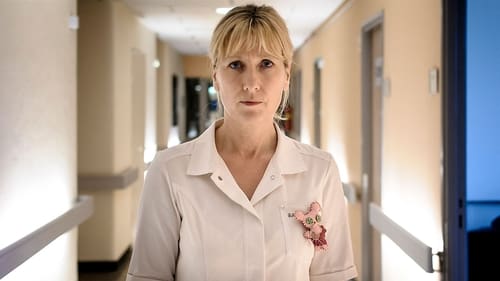
Writer
An assistant prosecutor zealously pursues a conviction in the case of a pediatric nurse accused of murdering her patients, but doubt arises when her evidence shows that the infants may have died of natural causes.

Claudia
How do you deal with the fact that someone close to heart has suddenly disappeared without a trace? Can you go on living whilst waiting for his return?

Writer
When her husband Ted is put in jail Bibi suddenly needs to provide for herself and decides to contact fortune teller Madame Jeanette.

Writer
Making Waves is the story of Cella (Jacqueline Blom) and her 71-year-old mother Johanna (Kitty Courbois). Life smiles upon Cella. Happily divorced, having two children and a successful job as a presenter at a local station, for which she interviews people every morning who take the ferry across the IJ river. In her enthusiasm, Cella resembles her mother, once a celebrated violinist, but the similarity also causes friction between the two women. Just when Cella meets a new love, her father's sudden death puts her life on a different track. Johanna increasingly muddles past and present and brings back fragments of memories that point to a painful secret she carries on her back. Cella tries to dig up the truth.

(as Monique Kramer)
The point of departure for this film is the 1981 composition De Tijd by Dutch composer Louis Andriessen. Van der Keuken leaves the music undisturbed as an autonomous soundtrack and has the images engage in a sort of battle with it. These images are associations, fragments of events, scenes and situations. The film is preceded by a text by Bert Schierbeek.

Rita Winters
Unrelenting pessimism dominates this slow-paced, dark film, the debut feature from director Digna Sinke dedicated to an archetypal born loser named Marian (Josee Ruiter). Marian is a journalist who has been working in Latin America and who arrives home just after her father dies to find out that the man she had married for purely political reasons might be deported because the authorities found out he was not living with her. Meanwhile, Marian is upset that her mother and sister are keeping her mentally handicapped brother in an institution, and she goes there to get him released into her custody -- a mistake it turns out. He is actually worse off with her, and vice-versa. On top of everything, Marian cannot break away from the depression she feels over a tragic incident that happened while she was in Latin America -- and anything she does is colored by that moment from the past. These burdens become almost too much to bear, both for Marian and the viewers.





